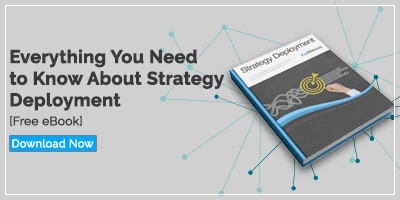 Speculative fiction and horror writer, Ray Bradbury, was one of the most celebrated 20th and
Speculative fiction and horror writer, Ray Bradbury, was one of the most celebrated 20th and
“People ask me to predict the future, when all I want to do is prevent it…. Predicting the future is much too easy anyway. You look at the people around you, the street you stand on, the visible air you breathe, and predict more of the same.”
In other words, keep doing what you’re doing and you’re going to get what you are getting. Few would argue that logic, but unfortunately, this idea is often ignored when it comes to strategic business planning. Executives huddle in a room, analyze budgets, set revenue goals, and predict great success without fundamentally changing the conditions that led to the business results they are experiencing today. A year later, or a quarter later, everyone wonders why nothing has changed.
Bradbury finished his quote about predicting the future with, “To hell with more, I want better.” Businesses should too and Hoshin Kanri is one way to change the future by building it.
Listen to this Post or Subscribe to the Podcast!
What is Hoshin Kanri?
Hoshin kanri is a management methodology first popularized in Japan in the 1950s. It is used by Lean practitioners and others as a way to define the organization’s key 3 to 5-year breakthrough objectives. "
The 5 Tenets of Hoshin Kanri
- Leaders need a holistic view into how the organization is performing
- A shared vision and direction is achieved by communicating the most important objectives to the entire organization at every level
- Understanding the current state of affairs is essential to shaping the future
- Resources should be aligned and prioritized in a way that gets the organization to the desired future state as efficiently and effectively as possible
- Involving all employees in strategic planning increases engagement, ownership, and ultimately success
The Six Steps of Hoshin Planning
Of course, every organization and business process methodology has its own spin on how Hoshin should be carried out, but there are some common and important steps:
- Craft the definition of "true north." True north should be something that will be consistent over time. Tactics may change from year to year, but the guiding objectives of the organization should not.
- Figure out what needs to change to keep the organization from producing more of the same. What problems, practices, and beliefs need to be addressed to reach the breakthrough goals?
- Establish objective,
measurable milestones to track progress. - Define key performance indicators for every level of the organization.
- Work with front-line employees, supervisors, managers, and other leaders to develop specific projects, strategies, and tactics that support achieving aligned department, team, and individual goals.
- Review progress at least monthly and make adjustments where needed to keep forward momentum. (Ideally, Hoshin Kanri is directed using visual management software that makes it easy for leaders to track the health of the strategy whenever they like.)
I’ll finish up this blog by saying that the internet cracks me up. I wanted to include the famous quote, “The best way to predict the future is to create it,” but I couldn’t remember who said it, so I did a Google image search for it. Apparently, it was Abraham Lincoln.
... or Peter Drucker.
... or Alan Kay.
... or someecards.com
... One odd image attributed the quote to Alan Kay, but had a picture of Richard Branson, so perhaps he said it too.
They collectively have a great point. Hoshin Kanri isn’t about predicting the future crystal ball style. It’s about building the future you want with careful planning, execution, and management. It’s not as sexy as Tarot cards or palm reading, but it works.



Add a Comment